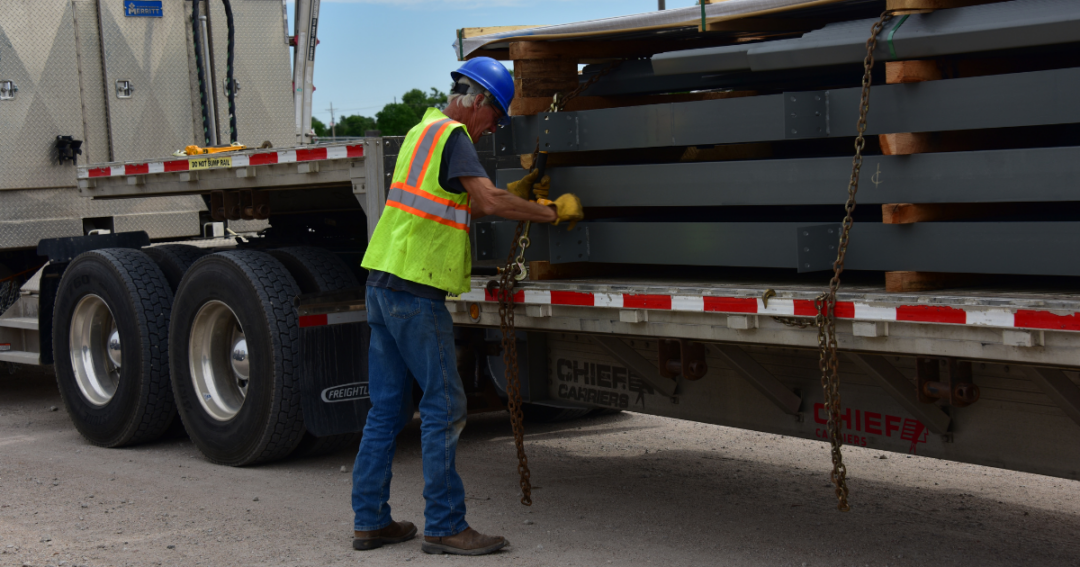Confronting the Dark Side of the Trucking Industry
The trucking industry plays a crucial role in our economy, connecting businesses and consumers across the nation. But like any significant sector, it’s not without its problems.
Today, we’re diving deep into the darker aspects that drivers and companies face.
Understanding these challenges is key, whether you’re considering a career in trucking or curious about the industry’s current state.
Assessing the State of the Trucking Industry
So, how is the trucking industry doing? The answer is complicated, underscoring the complexities of a dynamic sector that’s vital to our economy.
On the bright side, the trucking industry continues to see robust demand for its services, underlying its pivotal role in ensuring the smooth flow of commerce by transporting goods nationwide.
Demands of the Trucking Industry
This enduring demand highlights the industry’s indispensable contribution to keeping the supply chain moving, supporting businesses, and satisfying consumer needs.
However, it’s not all smooth sailing. The industry finds itself grappling with a range of challenges that, if not effectively managed, threaten to dampen its efficiency and overall success.

What Issues Do Drivers Face?
Issues such as driver shortages, regulatory complexities, and rising operational costs pose persistent hurdles.
Additionally, the push towards sustainability and the incorporation of green technologies introduce both challenges and opportunities.
As such, the state of the trucking industry is complex, marked by promising prospects shrouded by significant challenges that necessitate strategic and thoughtful responses from stakeholders.
Is the Trucking Industry in Trouble?
While “trouble” may indeed sound like an alarmist perspective, the reality is that the trucking industry is grappling with various significant challenges that hold the potential to seriously disrupt its day-to-day operations.
From issues surrounding labor practices to regulatory hurdles and environmental concerns, these obstacles, unless promptly and adequately tackled, present a threat not only to the livelihoods of individual truckers but also to the broader workings of our economy.
Why a Robust Trucking Industry Matters
The trucking industry, serving as the lifeblood of commerce by ensuring the seamless movement of goods across the country, plays an indispensable role in our national economic health.
Should these challenges continue to go unaddressed, we could witness disruptions in supply chains, increased costs for consumers, and a tangible impact on the economic growth and stability of regions reliant on this vital industry.
It’s a call to action for stakeholders within the industry to undertake measures to navigate these rough waters, safeguarding the future of trucking and, by extension, the economy at large.

Exploring Trucking Industry Problems
Misclassification of Drivers:
The lure of expanding a trucking business can lead some smaller operators down a path of exploitative labor practices. It’s not uncommon for drivers expecting to be company employees to find themselves classified as independent contractors.
This classification shifts the burden of taxes onto the drivers and deprives them of benefits like paid vacation and health insurance.
Impact of Misclassification:
This practice may initially seem like a win-win, offering drivers higher paychecks since taxes aren’t deducted.
However, the reality hits hard when drivers must handle their taxes and lack essential benefits, showing a darker aspect of labor practices in trucking.
Safety Concerns in the Trucking Industry
Compromising Safety Standards:
Safety should never be negotiable. Yet, some smaller carriers, in their bid to cut costs and push for more profits, may neglect essential safety practices. This includes relying on older trucks that dodge modern electronic logging regulations or encouraging drivers to log more hours than legally allowed.
The Importance of a Clean Driving Record:
Drivers often fall into a trap where minor violations in their driving records push them towards these smaller carriers, as larger, more reputable companies won’t hire them.
This scenario perpetuates a cycle where drivers are employed under less-than-ideal conditions, highlighting the importance of maintaining a clean driving record.

Driver Health and Mental Well-being
The Sedentary Lifestyle:
The physical health of truck drivers can deteriorate due to the sedentary nature of their job.
Except for occasional physical activities like inspections and loading, most of their time is spent seated.
This aspect of trucking positions demands a conscious effort to stay healthy, an often overlooked challenge in the industry.
Mental Health Matters:
Truck driving can be a lonely profession. Modern communication technology has lessened the isolation somewhat, but the issue persists.
Building a supportive community within the industry is crucial for mental well-being, showcasing the human element of trucking that often stays hidden behind the wheel.
Trucking’s Environmental Impact
The Push for Greener Alternatives:
As society becomes more environmentally conscious, the trucking industry faces pressure to reduce its carbon footprint.
Efforts like transitioning to battery electric vehicles (BEVs) and implementing emission controls show a commitment to environmental responsibility.
However, these changes also present challenges, from infrastructure needs to the transition’s pace.
A Responsible Industry:
While some advocate for drastic changes, the industry’s path to sustainability is gradual yet determined.
Organizations like Smartway demonstrate the industry’s commitment to reducing environmental impact, a vital consideration for the future of trucking.

Regulatory Challenges in the Trucking Business
Navigating Regulation Changes:
Hours of service regulations are a constant concern. Larger carriers typically comply with federal regulations thanks to electronic logging devices (ELDs).
However, smaller carriers facing financial pressures might skirt these rules, putting drivers in difficult positions.
The Importance of Compliance:
This disparity in adherence to regulations highlights the importance of new drivers aligning themselves with carriers that prioritize compliance and safety. It’s a critical step in ensuring not just personal well-being but also the reputation and success of one’s career.
A Look to the Future for Trucking
While the trucking industry undoubtedly faces significant challenges, it also displays resilience and adaptability. Problems ranging from exploitative labor practices to environmental concerns are being addressed, albeit gradually.
For those within or looking to join the industry, awareness of these issues is the first step toward fostering positive change. Aligning with companies that prioritize safety, compliance, and driver well-being can not only ensure a rewarding career but also contribute to the industry’s overall improvement.
Chief Carriers and the Trucking Community
If you’re currently navigating the complexities of the trucking industry or considering diving into this essential sector, it’s critical to stay informed and choose your affiliations wisely.
For aspiring drivers, securing a position with a reputable carrier like Chief Carriers, known for its commitment to driver welfare and industry best practices, can make all the difference.
In facing the industry’s challenges head-on, we can collectively steer towards a future where the trucking industry continues to thrive, powered by responsibility, innovation, and respect for its workforce.
Stay up-to-date on the trucking industry by listening to a new episode of Driven Too Far: The Truth about Trucking every week! Available on all streaming platforms.

